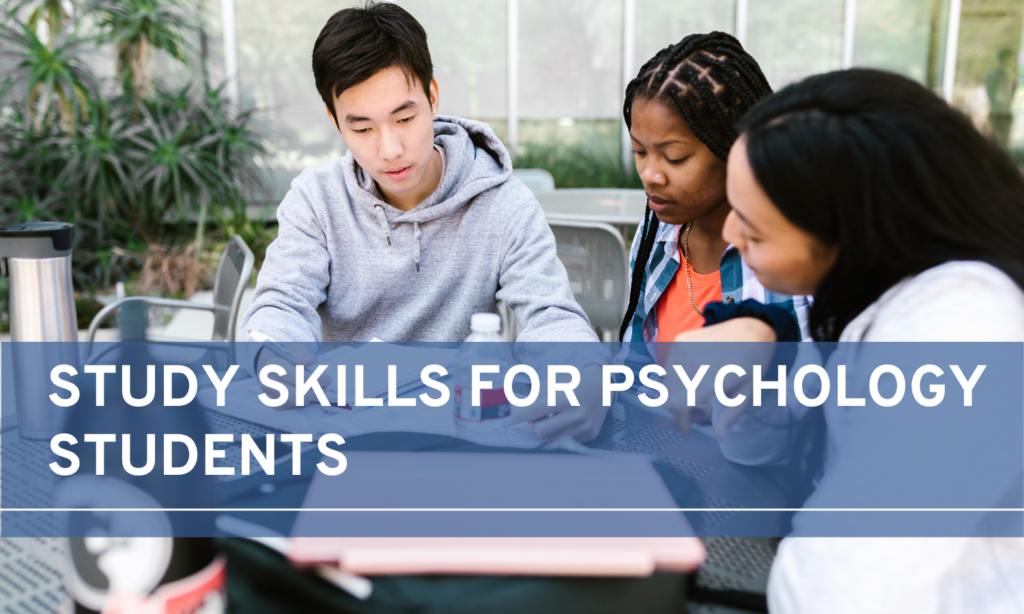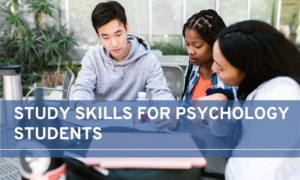If you want to study psychology, there are a few things you need to learn. These include Information-finding and measurement skills, as well as creativity and adaptability.
These skills are essential for succeeding in the field. They will help you to get the most out of your time and study. These skills can make the difference between your success and failure.
Table of Contents
Information-Finding Skills
Information-finding skills are an essential part of a psychology education. Whether you are a beginning student or an advanced student, you should have the skills necessary to locate relevant information.
Psychology departments incorporate information literacy skills into their courses, and students should be able to do a comprehensive literature search on their own.
A psychologist’s job involves a lot of computer use. For example, they may use patient management software to keep track of patients and billing information.
They may also use statistical software to conduct research or generate reports. Data visualization tools are also a common tool for psychologists.

Developing these skills early in one’s career can help them solve a wide range of problems and find better treatments for their clients.
Effective communication skills are another important part of a psychologist’s job.
Whether you’re talking with a client or preparing a presentation, psychology professionals must be able to make clear and accurate statements. They may also need to adapt their communication style to their patient’s needs.
Research skills are also an essential part of a psychology major’s education. Throughout their studies, students will study different theories and analyze various case studies.
Developing these skills will allow them to make connections between different areas of psychology and determine which theories resonate best with their own ideas.
In addition, students must be able to read relevant texts and analyze the data presented to them.
Measurement Skills
Measurement skills are among the most important skills learned by psychology students. They help students to develop a deeper understanding of complex psychological processes and develop tools for measuring them.
These skills are not only applicable in the psychological profession, but are useful in a variety of aspects of life. Despite their importance, these skills are not easy to master without explicit training.
To develop good measurement skills, it’s important to first have a conceptual definition of the construct being studied. This will help researchers make sound decisions about how to measure it.
For example, a vague concept of memory would make it impossible to determine what type of measure would be most appropriate for that construct. Psychologists typically conceptualize memory as a set of semi-independent systems.
In addition, students should consider how well they perform in communication in different settings and modes. There are several tests available to measure communication skills.
The Self-perceived Communication Competence Scale (SCCS) is one such tool. It includes 12 items that evaluate students’ performance in various social settings.
The questionnaire also contains questions related to the ability of students to communicate with strangers.
Adaptability
Adaptability is an important study skill for psychology students because it allows you to adjust to new situations. While resilience is an emotional state, adaptability involves changing your ways when things change.
There are many ways to foster your adaptability, including gaining perspective on new situations and developing creative thinking and problem solving skills.
Adaptability increases psychological safety, improves self-awareness, and leads to improved performance and outcomes.
In addition, students who practice adaptability are more likely to be happier and more successful in the future. They are less likely to self-handicap or quit, and are more likely to remain buoyant in the face of academic challenge.
Adaptability is also important in the workplace. You can use your emotional intelligence to make friends and deal with organisational changes. The ability to adjust to change can help you overcome adversity and improve your performance in class or the workplace.
When combined with resilience, it makes students more resilient and better suited to life in general.
Students in psychology need to practice adaptability in many settings. For example, they should pay attention to the way they speak and their body language to avoid misunderstandings.
If there is a difference in meaning between two people, it may be time to try to talk things out before things become out of control.
Adaptability also requires you to be able to change your behavior when situations change. If you avoid new situations, you will be less likely to adapt.
Adaptability is also enhanced when you receive external support. This means that you will receive support and resources that will help you learn.
Creativity
Creativity is an essential reserve for self-actualization, and it serves as a mechanism for adapting a person’s personality to changing social situations.
It is important to be able to change and develop situations, as a psychologist must do. This is why creativity is an important study skill.
The executive structure of the brain has a variety of mechanisms and resources that contribute to creativity. This is one way to train psychology students to increase their creativity.
This skill is essential to future psychologists, and is a prerequisite to professional success in this field. Developing a creative personality can significantly improve the efficiency of training.
Creativity is the capacity to produce original, innovative and valuable ideas and concepts. It has been called “the skill of the future” and is an essential trait for adapting to change.
It also contributes to an individual’s openness to experience, which is a major personality trait. Creativity has also been linked with longevity and can extend a person’s life.
Teaching creativity requires discipline and hard work. Students must learn to differentiate good from bad ideas. Students must learn to identify creative problems, which can help them become better problem-solvers.
A safe and creative environment is essential to the process. Students should be shown that ideas may fail, and they must maintain their integrity when they do succeed. In addition, students should be taught strategies to deal with group dynamics.
There are many ways to measure creativity. One way to test creativity is to take a creative problem-solving test. The test is available on the Psychology Today Web site.
It includes 20 questions and takes about 10 minutes. It also comes with a Snapshot Report, which provides a personal interpretation of one’s test score.
Critical Thinking
Critical thinking is an important study skill for psychology students. It helps students to understand the scientific explanation for human behavior.
Students learn how to apply psychological concepts to their lives and learn to recognize errors in their assumptions. It can also help them become better consumers of information and careful judges of character.
Critical thinking is a process that focuses on concepts and principles rather than step-by-step procedures. It does not guarantee accuracy, truth or correct conclusions.
A person who fails to critically think may not be aware of all relevant information, misinterpret an idea, overlook an important implication, or use a narrow point of view. The result is often biased, inaccurate, and even illogical.
The Critical Thinking Companion for Introductory Psychology can help students develop this skill. The Companion contains several examples of poorly designed research that students can use in their coursework.
By practicing on examples of poor design, students will develop their own research designs, which can help them improve their critical thinking abilities.
Critical thinking requires an individual to consider different points of view and make rational judgments. The critical thinker applies a range of criteria to evaluate the validity of a statement.
He or she must consider the context, relevance, credibility, and logical consistency of a statement. This process is fundamental to any academic discipline and is critical thinking in action.
During class, instructors should encourage students to think critically and evaluate information they read. The instructors should model this critical thinking skill in their own lives by thanking students for asking good questions.
Teachers should also thank students for providing examples of principles or concepts.

